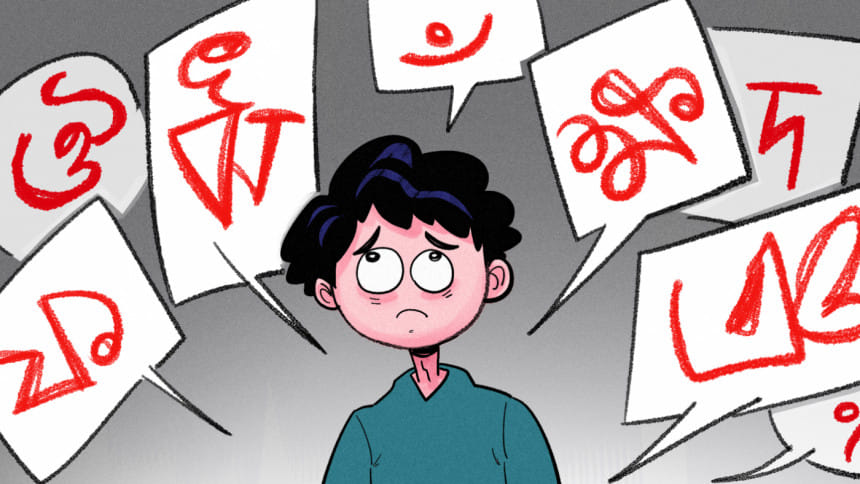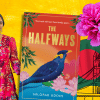Language loss constructs cultural barriers for Bangladeshi-American youth

Bangladeshi immigrant communities face the challenge of cultural preservation in the fast-paced melting pot of America. Through assimilation and isolation, Bangladeshi-American youth now grapple with the obstacles of language loss – a phenomenon that creates a cultural disconnect and strains family relations.
"What most Bangladeshi people don't realise is that the United States is home to many cultures with people from around the world. In Bangladesh, it's mostly Bangalee people. When there is more diversity, it becomes more difficult to preserve a culture completely," said Afnan Salahuddin, a 17-year-old from Maryland.
Language is a cornerstone of culture, carrying a community's collective history, traditions, and values. However, the increasingly prevalent language divide presents a significant challenge for Bangladeshi-American youths. As generations grow up in predominantly English-speaking environments, Bangla struggles to find its place. Adopting English as the primary language of communication in schools, combined with the influence of American culture, has resulted in the erosion of Bangla proficiency among these youth. This loss of language holds profound consequences that impact cultural identity, create an inability to engage in deep conversations, and minimise meaningful connections with family members.
"While at big family gatherings, I sometimes have difficulty finding the right words to express myself in Bangla, so sometimes I choose to stay quiet instead of sharing my thoughts," said Areebah Jahin, a 20-year-old from Virginia. "In Bangladesh, my American accent is very clear at times, and sometimes my family will make fun of it and unknowingly hurt my feelings, which initially deters me from wanting to speak Bangla even more."
Amid this language divide, Bangla language schools have emerged as an invaluable resource for those seeking to maintain their linguistic and cultural roots. These schools play a vital role in providing instruction in the Bangla language, fostering a sense of belonging, and preserving Bangladesh's heritage.
"A few years back, my family and I visited Bangladesh. It's been a long time since I've talked to my relatives in Bangladesh, but I barely talked to them during the visit. I barely knew how to speak Bangla, which was the only language they knew," said Obonti Zaman, a 15-year-old from Virginia. "I then started Bangla school, and in only a month, I learned the basics of how to converse in Bangla. When I went to Bangladesh again, I could talk to my family more easily. Of course, I wasn't perfect, but it did help build a stronger bond between me and my family in Bangladesh. Knowing Bangla has also made me feel more connected to the history and culture of my parents and relatives."
Zaman takes Bangla language classes at the Bangladesh Center for Community Development, which serves the greater Washington DC metropolitan area. Not only does the school provide basic language/communication classes, but it also provides opportunities for students to participate in cultural activities such as Bangladeshi dance, music, and performance.
"Learning Bangla and engaging in Bangladeshi dance and singing broadened my knowledge of my culture and made me better understand the traditions in Bangladesh," said Zaman. "Learning about Bangladeshi holidays and events in Bangla school helped me connect to those different aspects of the culture. Understanding the traditions and culture helped me find a sense of who I am and what my culture is."
While some Bangladeshi-American youths have been lucky enough to attend Bangla language schools, others face a more uphill battle with Bangla proficiency. The inability to speak fluently in Bangla can lead to feelings of disconnection and a sense of loss regarding cultural identity, often grappling with how to embrace heritage while simultaneously navigating an English-speaking society.
"My schedule doesn't allow for me to dedicate time to specifically learn Bangla since I am preoccupied with school and extracurriculars," said Salahuddin. "Because of that, I feel guilty for my inability to read, write, and speak my mother tongue fluently."
While fluency in the Bangla language remains an ideal goal, there are alternative paths that Bangladeshi-American youths can take to foster cultural connection despite language limitations. Activities such as celebrating cultural festivals, engaging in traditional customs, and preparing traditional meals can serve as powerful reminders of their heritage. Storytelling, intergenerational dialogues, and engaging with cultural media can also help bridge the language gap and nurture a deeper understanding of their roots.
While some Bangladeshi-American youths have been lucky enough to attend Bangla language schools, others face a more uphill battle with Bangla proficiency. The inability to speak fluently in Bangla can lead to feelings of disconnection and a sense of loss regarding cultural identity, often grappling with how to embrace heritage while simultaneously navigating an English-speaking society.
"Poetry is a significant part of Bangladeshi culture, something I didn't know until after reading and writing Bangla. I was introduced to so many poems and poets, like Kazi Nazrul Islam and Rabindranath Tagore," said Nahli Zzaman, an 18-year-old from Virginia. "I was already interested in Western poetry, but now I have a whole other branch to discover."
In a globalised community, preserving language and culture within immigrant communities is more crucial than ever. It is empowering to feel connected to one's history and heritage through language, and by recognising the impact of language loss, Bangladeshi-American youths can navigate the complexities of cultural identity and bridge the language barrier.
"It's okay not to be connected to Bangladeshi heritage right away. It does take time, especially if you are growing up in a community that doesn't speak Bangla. But try to introduce yourself to the traditions slowly. You will get there if you have the correct mindset and are willing to embrace your culture," said Zaman.
Anisha Iqbal is a Bangladesh-born student journalist from the Northern Virginia/Washington DC area in the US.

 For all latest news, follow The Daily Star's Google News channel.
For all latest news, follow The Daily Star's Google News channel. 











Comments